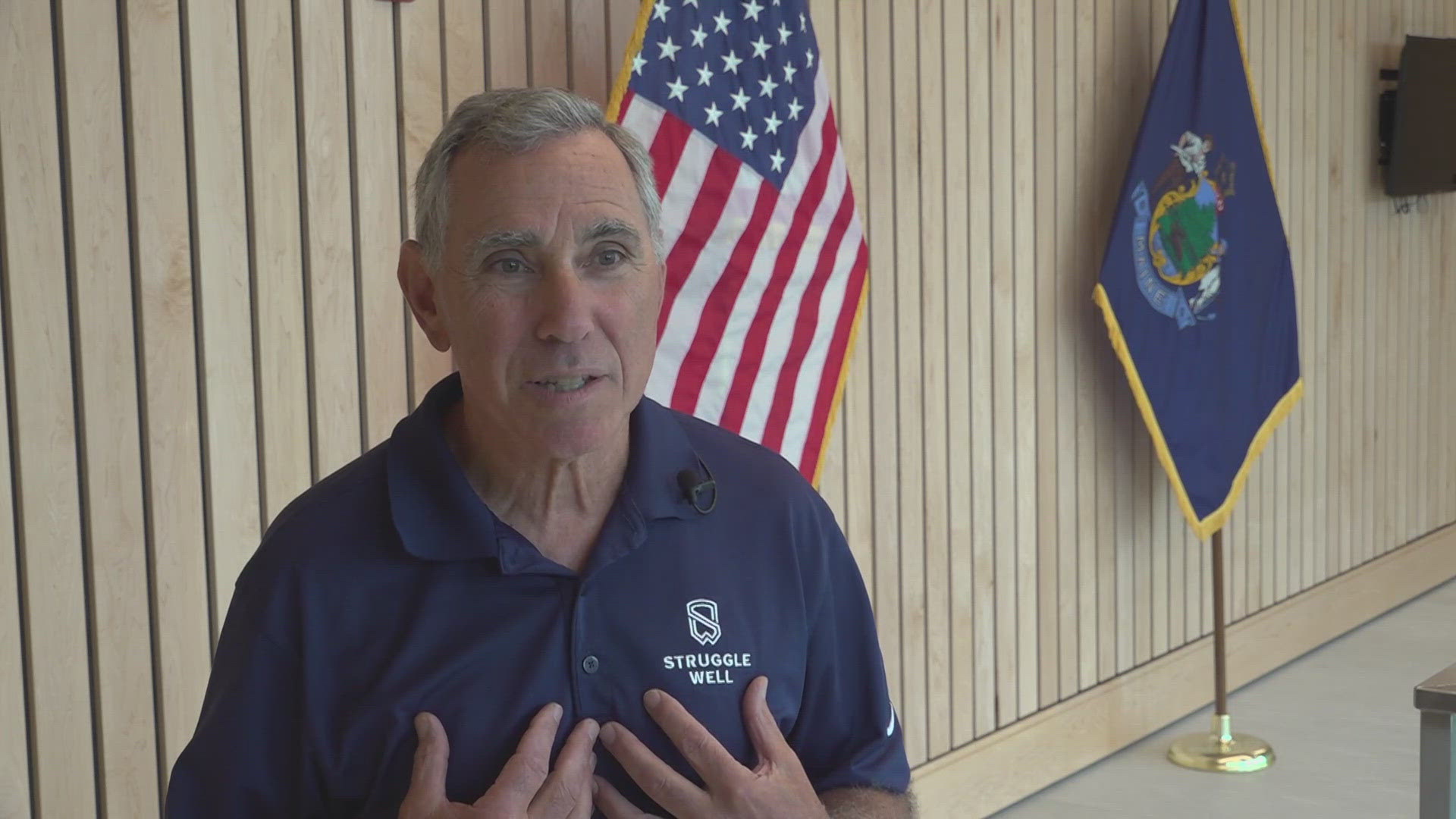AUGUSTA, Maine — First responders see a lot while on the job, the good and the bad. But sometimes the bad can leave an impression, impacting mental health.
A prevention-focused program based on the science of post-traumatic growth provides those who serve and protect with the tools to cope with what they encounter.
The Struggle Well program is one of several offered by the nonprofit Boulder Crest Foundation. The program is geared toward military units and first responders.
Life after trauma is what Struggle Well guide Richard Golden said is the goal of the program.
"That can be one incident, or as we like to say, there's death by 1,000 cuts, right? I spent 25 years with the Maine State Police, and during that time, I was witness to hundreds and hundreds of traumatic incidents," Golden said.
The program has visited police departments across the country.
In August, the Augusta Police Department was the first in Maine to have invited the program to talk to staff.
"Not only did I want to provide this as a tool for our staff that will just make them better, as well as the people they serve better, but I wanted to be able to experience it as well, so I get a better understanding maybe where we're failing as a department in that realm," Augusta police Chief Kevin Lully said.
Golden said this type of program covers multiple generations.
"For the young guys, it's a preventative thing, so they don't have issues down the road. For the older guys, it helps them process what they've gone through for 20 years of their careers," Golden said.
Even though Golden is not a clinician, he uses his 25 years with the Maine State Police as an educational tool.
"If that helps somebody else open up and talk about it, then that's a benefit," Golden said. "The old saying of secrets hold power over you until you share them, right? But a lot of times, everybody's closed in, and they don't want to share them because maybe that's a sign of weakness."
The Struggle Well program wants to close the door on weakness and open the door to reliability.
"Some men and women spend upwards of 8, 10, 12 hours per day here every day together, and so they recognize those traits," Lully said. "They recognize a baseline for everybody. So, if all of a sudden they're seeing somebody who might be in need, maybe if I don't recognize my own need, maybe one of my coworkers will."
Lully said it's not uncommon for first responders to respond to more than 100 calls a day in Augusta.
"What that doesn't allow for is time for them to decompress, identify maybe some of the concerns or impacts it's having on them and if they're being impacted by it, then that means that their coworkers or their families are being impacted by this as well," Lully said.
Other lessons include understanding why a first responder may feel a certain way after an incident and looking at how and why that individual is struggling.
"We like to say that you're given a certain-sized capacity box and because of the way we're trained, what do we do? I can't stop and process what I've just experienced. I've got a job to do," Golden said. "I equate it to like a volcano that's been boiling for 20 years, and it'll rear its ugly head."
With that in mind, Struggle Well looks to find healthy practices to move forward. That can be exercise, reading, meditation, and so on.
"What's important to us, what values guide you, and how you want to live your life? And sometimes, when you're in deep struggle, you forget about those and that causes conflict, right? ...If your mind is telling you one thing and your heart's telling you something else and we want to try to close that gap," Golden said.
Lully said learning these tools to cope with trauma could also help first responders while interacting with the community. For example, if they go on a call, an officer may be able to find common ground to help someone else.

